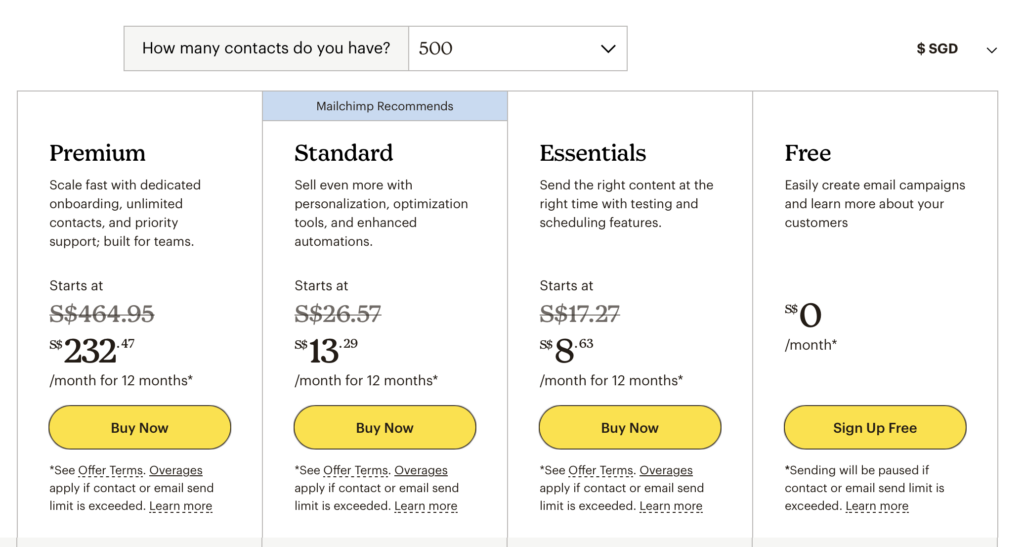Editor’s Note
This article has been updated in 2024 for comprehension and relevancy purposes.
Look around; more and more companies are embracing technology, especially with the growing digital sphere. In Malaysia, there is a rapidly growing number of digitalization incentives and grants by the government and banks.
These monetary assistance are meant to help SMEs and business owners automate their business processes and move towards digitalization. Hence, now is a suitable time for you to digitally transform to grow your company’s competitive advantage.
And how do you do that?
The big names in tech today have been some of the most innovative companies in the past decade. What distinguishes these tech companies from others?
Their technology.
Having tech that efficiently tackles their digital issues allows them to scale faster and more flexibly than their competitors. When used well, “IT” isn’t a blocker that gets in the way but a driver of continuous innovation and adaptation.
In this article, we discuss the spectrum of products — solutions, their characteristics, and the ways to identify the best ones for your organization’s growth.
Software Products
A software product is often referred to as a “tool” or “off-the-shelf software” commonly purchased on the internet. These tools are made by software development companies to cater to the mass market through monthly subscriptions and license fees.

Take Mailchimp, for example — with varying prices for varying sets of features, you get to select one that you like, make the payment, and use it right away. It’s a blend of cloud solutions and some code. Something simple that just works.
Another good example of a software product would be Microsoft Office, a powerful service product that lets you get different types of work done with a variety of applications. You can also stay connected with your files wherever you are by signing in to your account and syncing your files to any device.

These applications require you to pay a license fee or subscribe to a monthly plan and are available in packages for business, education, and government organizations.
Software Solutions
A solution, on the other hand, is the “fancy” end of the software spectrum. These solutions are customized to specifically fit into an organization’s problems and needs. They are normally used to solve large problems in large organizations.
Often, they are powerful and advanced solutions built by companies that sell to very few, very large organizations. The discovery process of discussing features and functions requires high qualifications and deep expertise.

The idea of a solution is far from just buying a software. The package usually includes a professional business analyst, a site architect, an onboarding tech consultant, and a project manager.
Hiring a software solution provider is a new way for your company to run a better business process, be it in finance management, quote order management, CRM, or any other process that helps your company grow its revenue. Oftentimes, it covers aspects such as automation, app development, website development, and technical consulting — to name a few.
These services definitely will cost a lot more than software, but for large organizations, the goal of getting solutions is to increase revenue or reduce costs by boosting productivity across teams of people and even across business units.
Product vs Solution: Their Main Differences
Cost
There is a massive difference in costs between software solutions and off-the-shelf products. Needless to say, if you are still in the startup stage with a small team, it would be pretty ridiculous to opt for an automation solution.
When your company is new, you’re still trying out different business models to understand what works and what doesn’t for you. It would be a waste of money and time to create a custom solution for your business when there are affordable software products available online that are able to fulfill your company’s needs.
As a plus point, software products are not usually too complicated to understand. They usually come with training manuals, and even if they don’t, there will always be materials and tutorials all over the internet. Choosing this will definitely save you training costs and time.
Time
When we talk about time, we talk about the overall experience. This includes the time you take to acquire the software and the time you spend learning how to use it.
Building a custom solution takes up a lot of time. This is because in order to find a solution that fits your business right and brings forth results, you need to know the ins and outs of your business very well.
Ordering tools without knowing how they can benefit your company would be a risk and an awful waste of money. The solution’s development process takes time as well. Depending on the size and complexity of the solution, it can take months of preparation before it’s ready for you to use. It’s not all bad, though. Considering a software solution can be a great opportunity for you to learn about your business and identify your business goals.
On the other end of the spectrum, time is an advantage for those who opt for software products. Because it is off-the-shelf, it takes no time to acquire. Learning to use it doesn’t take a long time, either. When a product is commercialized and has reached thousands and millions of people, it’s pretty easy to find solutions for a bug or a problem over a simple Google search.
Reviews, forums, and manual videos are often abundant. This advantage is what we call “Community Support” — look up your problem online and find a solution immediately. Easy.
However, there is a disadvantage when you get commercial products. Oftentimes it comes with many features that your company doesn’t need. They can cause a drop in productivity as too many features can actually slow down the solution. What’s worse is that, in most cases, it’s impossible to delete or turn off these features, so you pretty much have no choice but to work with unnecessary features in the way.
Maintenance and Flexibility
Given the agile approach practiced by software development companies, your software solutions will be very flexible, meaning it will be easy to change or add any new features to your software.
Unlike solutions, off-the-shelf products, which are meant to meet the needs of many parties, will have feature restrictions in certain plans or packages. Not getting everything you need in your software product could be a compromise to your business, so for some advice, be sure to make comparisons before subscribing to a software product online. Your goal should be to get the most out of the product you buy.
Summarized Comparison
| Aspects | Software Product | Software Solutions |
| Cost | – Best option for SMEs – Saves training costs | – Preferred by larger organizations – Costly as it’s customed |
| Time | – Faster to purchase & implement – Wide community support | – Development takes time – Better option to understand your business |
| Maintenance & Flexibility | – Restricted features | – Flexible to changes |
Next Step for You
We hope you’ve gained a thing or two from this article. By now, you should pretty much be able to differentiate between a product and a solution.
In brief, a software product delivers value to your business, while a software solution delivers changes in your overall business process on a larger scale.
So take a minute to look at your business needs and goals before making the big decision.
Thinking of automating your business? Snappymob has helped many businesses, from startups to large organizations, embrace digitalization. If you’re interested in exploring the different ways your business can expand digitally, reach out to us here!
